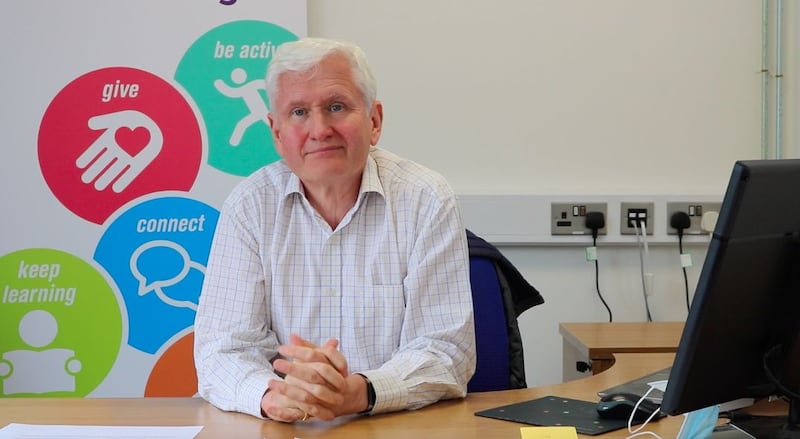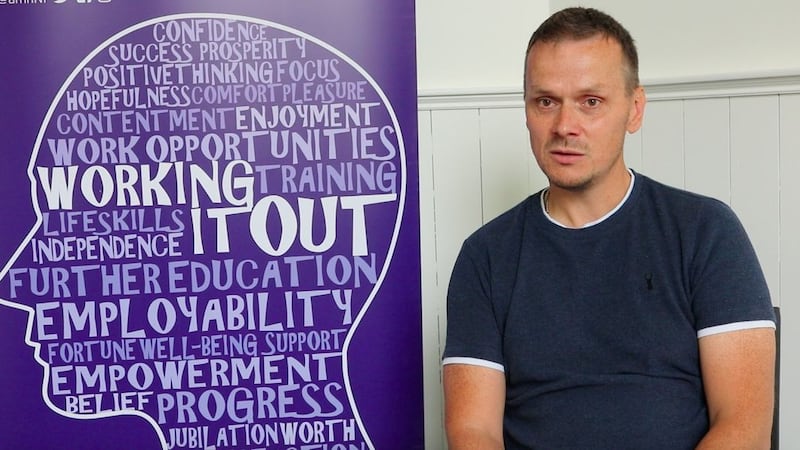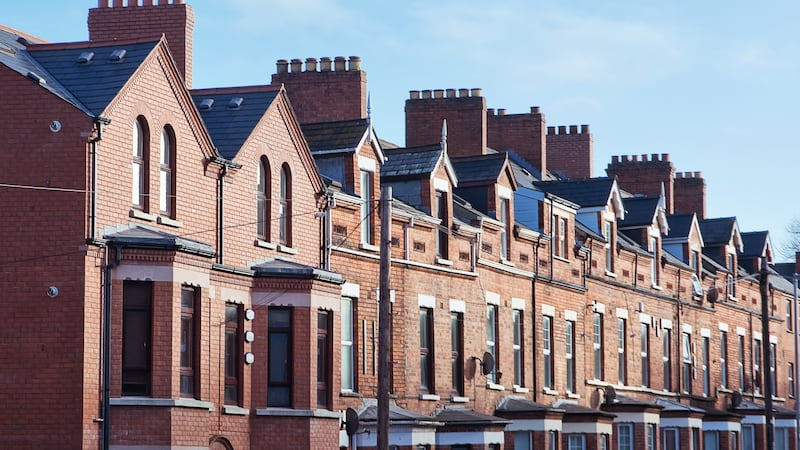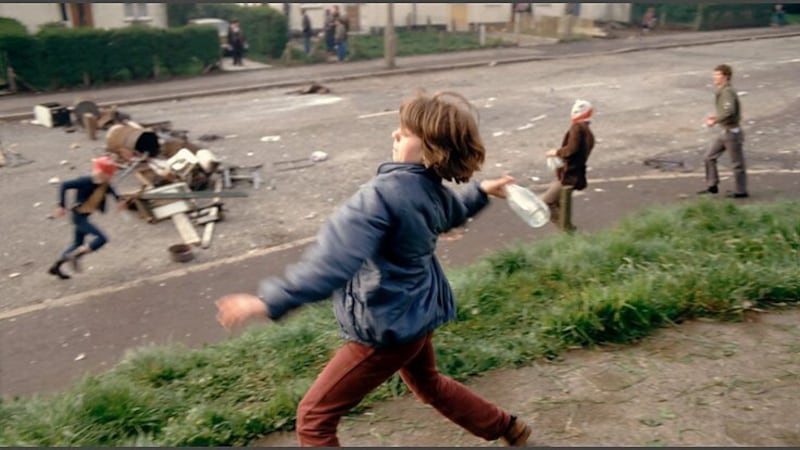One in five people in Northern Ireland are living with a medically diagnosable mental health condition.
Mark Kincaid is a father of two from Lisburn and a former graphic designer who now works in a caring role. He is grateful to Action Mental Health for the help and support it has given him and is telling his story on father's day to highlight Men's Mental Health Week.
"I wouldn’t have known this until I got really unwell, but I have had mental health issues as long as I can remember... probably since I was three years old but being at home in a good family environment protected me because I may have had those things that were bothering me, but the home environment was safe and secure," Mark says.
He noticed his mental wellbeing declining when he became a graphic designer.
“I think of that job in that way: I loved it, but it was detrimental to me. In 1997, I was 23 at the time, I started getting bad thoughts. Really anxious thoughts. I was petrified that I was going to die.
“As a kid I was always worried about death... it was quite an anxiety for me. But this was something major for me. This was going to happen, and I couldn’t control it.
“It became an obsession. I couldn’t eat, I couldn’t sleep, I couldn’t do anything because I thought what’s the point if I’m going to die soon?
“It turns out I have an obsessional disorder. I went through a wedding like this with these feelings."
Mark spoke to his doctor who prescribed anti-depressants, which helped for a time.
“Instead of a massive hammer hitting me it was just a wee stick.
“Two years later I started to get stressed again. Then the thought came back, and down I went again.
“To condense everything down that cycle has happened to me seven times now."
Mark says he had to take time off work and describes his CV as "a bit of a train wreck".
“My CV could probably get me a decent job even now, but I would be petrified of doing it."
Mark has been well for six years which he says is the longest period to date.
“In amongst that we had a child, and we had our child late because when I get really bad, I can’t function so the stress of a child on top of that. We were married 12 years before we had a child.
“I had to stop working. But stopping working meant I had nothing to do and I find if I can get something mentally stimulating, then my mind wants to do normal.
“I was in such a bad way that I had to go to a place in Lisburn called The Whitehouse.
“It was very short, and they said ‘Look Mark you have come as far as you can. The next step is Action Mental Health'.
“A girl phoned me up, Jenny, she said that there just so happened to be a photography course. I love photography."
The short course got Mark out of the house and active.
“Men have this thing with their family, they have these wee chicks in the nest, and they need to feed them and the mother.
“We need occupation. But people think that means employment. It can be anything.
“AMH [Action Mental Health] has been a constant for me for two years. I call it Good Ship AMH.
“When you think about it, you are lost at sea - that’s your mental health. And it’s dark and you don’t know what to do.
“You’ve got this silly little life jacket on, and that’s the medication. So, the waves come, and you go under because the life jacket isn’t perfect but then you see this big light, and the light comes and it’s a ship. The ship comes and it’s called Good Ship AMH.
“You shout, 'pull me up', but they don’t. And they shout, ‘no you stay there, and we will help you swim to shore’.
“If they pull you up, you won’t have learnt anything. If I’m in the sea again, okay I might struggle but I have learnt some things to swim to shore."
Mark has now taken up a caring role which came about through his cycling club where he would tandem cycle with blind or partially blind people.
Father's day is an opportunity to check on the men in your life

Action Mental Health Chief Executive David Babington says the charity provides counselling as well as recovery and resilience services.
Today on father's day he is encouraging people to think about the men in their lives who might need a little support.
“Generally, men do still feel that they have to be the breadwinner and therefore they are less likely to ask for help. This has been exasperated by Covid as well.
“Men are less likely to reach out because they tend to be the least likely to talk.
“We are conscious that at the end of men’s mental health week we have father’s day.
“Families should come together and actually reflect on the men in their lives who need the support.
“For the individual themselves, try to connect. They may feel a bit embarrassed or they are letting someone down. They don’t think they should be showing that sort of weakness. Please do speak out.
“However, if you feel there is someone in that situation who is unable to speak out, I think it is important for all of us, and our families and communities is to ask them, ‘Are you okay?’
“You will be surprised that it can be a real catalyst."
He said organisations such as AMH, Samaritans and Lifeline are there to help.
- If you are in Crisis you can contact Lifeline on 0808 808 8000 or the Samaritans on 116 123
- For more information on Action Mental Health visit https://www.amh.org.uk/


